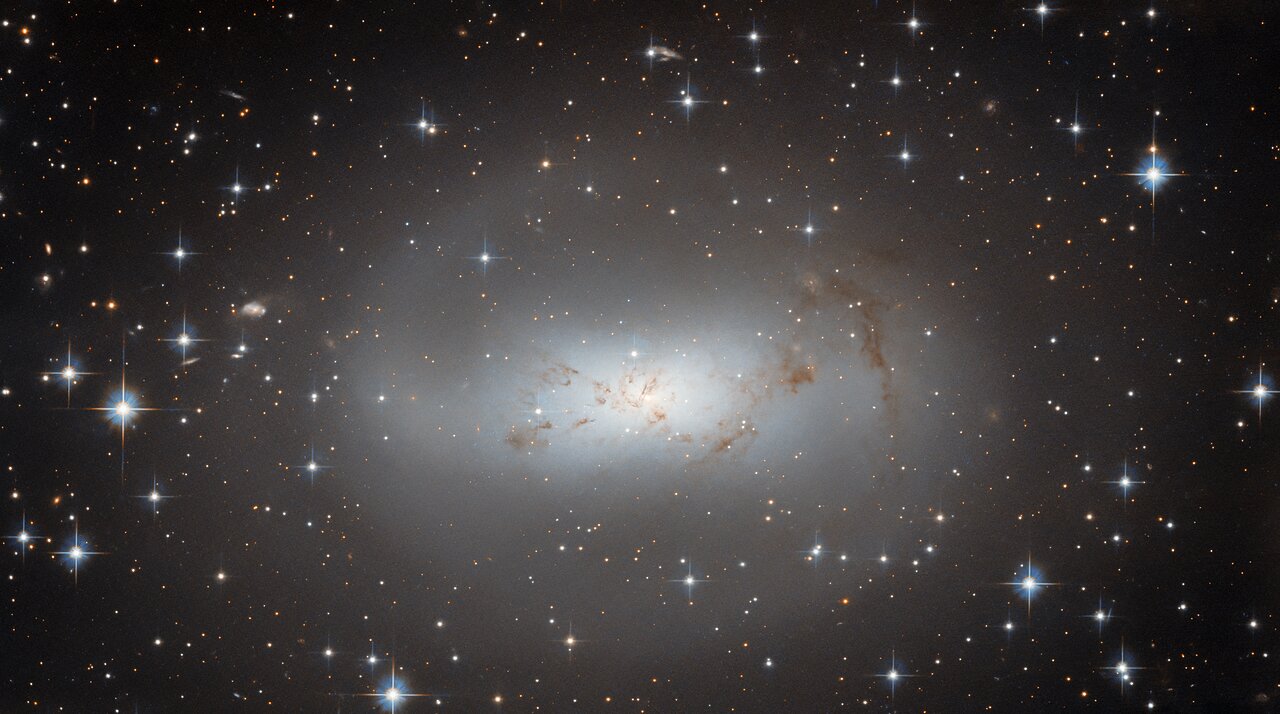Cosmos ESO 174-1
The highly irregular galaxy ESO 174-1, which resembles a lonely, hazy cloud against a backdrop of bright stars, dominates this image from the NASA/ESA Hubble Space Telescope. ESO 174-1 lies around 11 million light-years from Earth and consists of a bright cloud of stars and a faint, meandering tendril of dark gas and dust. This image is part of a collection of Hubble observations that aims to get to know our nearby galactic neighbours. To be more precise, the observations aim to resolve the brightest stars and basic properties of every known galaxy within 10 megaparsecs. A parsec is a unit used by astronomers to measure the vast distances to other galaxies — 10 megaparsecs translates to 32 million light-years — and makes astronomical distances easier to handle. For example, the nearest star to the Sun, Proxima Centauri, is about 1.3 parsecs away. In everyday units this is a staggering 40 million million kilometres! The programme to capture all of our neighbouring galaxies was designed to use the 2-3% of Hubble time that absolutely no other observing programme can use. Many of the myriad objects that Hubble observes can only be seen at certain times of year, which makes filling out the observatory’s schedule a daunting logistical challenge. Observing programmes such as the one which captured ESO 174-1 help Hubble’s operators get the most out of every last minute of observing time. [Image Description: A galaxy, large and occupying most of the view from the centre. The whole galaxy is made of smooth, diffuse light. In the centre it is brighter and bluer, fading to a pale grey halo that is faint and see-through. The light forms an arm on one side that curls around the top. A couple threads of dark dust cross the centre. Many stars shine around the galaxy, on a black background.]
